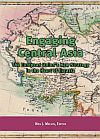The EU and Kazakhstan: Is the pursuit of energy and security cooperation compatible with promotion of human rights and democratic reforms?
The EU and Kazakhstan: Is the pursuit of energy and security cooperation compatible with promotion of human rights and democratic reforms?
Author(s): Bhavna Dave
Subject(s): Energy and Environmental Studies, Human Rights and Humanitarian Law, Environmental and Energy policy, Government/Political systems, Security and defense, Comparative politics, EU-Approach / EU-Accession / EU-Development
Published by: CEPS Centre for European Policy Studies
Keywords: EU; Kazakhstan; Energy and security cooperation; Human rights; Democratic reforms;
Summary/Abstract: Kazakhstan’s continuing socio-economic and political stability, a formal commitment to political reforms and an avowed pro-Western orientation make it the European Union’s most reliable partner in the Central Asian region. Kazakhstan’s expanding economic and security partnership with Europe is part of its ‘multi-vectoral’ foreign policy geared at balancing its ties with Russia, China, the Western states and the Muslim world. Kazakhstan has skilfully utilised its geostrategic location as a corridor between Asia and Europe and the country’s rising profile as the leading oil exporter to Europe after Russia (almost 80% of EU imports from Kazakhstan consist of fuel) to carve out a special niche for itself within the European market.
Book: Engaging Central Asia. The European Union’s new strategy in the heart of Eurasia
- Page Range: 43-67
- Page Count: 25
- Publication Year: 2008
- Language: English
- Content File-PDF

